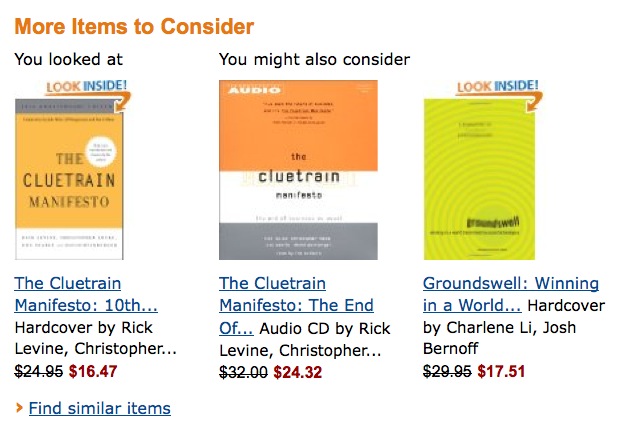So I just went to look up Debora Spar’s Ruling the Waves, on Amazon, and was greeted by the above. Never mind that I wasn’t looking for what they said I just looked at. Consider instead the strangeness of having something with my name on it, as an author, and that I can reasonably be presumed to own recommended to me as a purchase. (As it happens I also own the third item. Dunno if I bought it from Amazon or not.)
For what it’s worth, can I find anywhere in my Amazon account info a place where I can let them know I’m an author and not just a customer.
Am I wrong about that? Is there a way I can let them know that? Is it worthwhile to either of us?

Leave a Reply